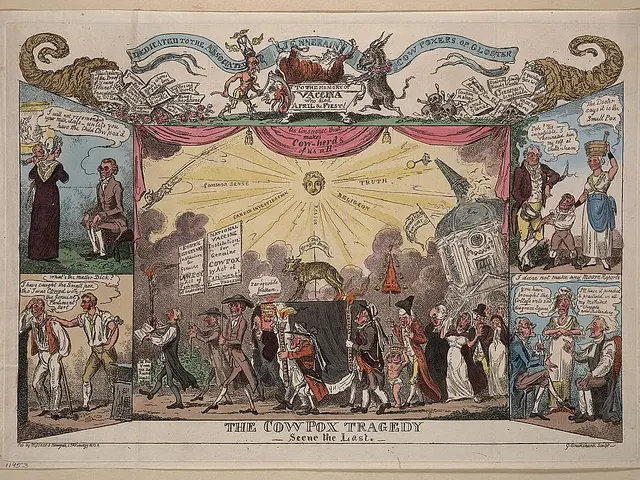Ministerial plans to distribute condoms in Thai schools, amidst surging youth cases of HIV.
**Thailand's Strategic Approach to HIV Prevention and Control**
In a bid to curb the spread of HIV, the Ministry of Public Health (MOPH) in Thailand has set ambitious targets for prevention and control. During a recent House session chaired by First Vice President of the Senate, Gen Kriangkrai Srirak, Deputy Minister of Public Health Chaichana Dechdecho announced plans to intensify efforts in this regard.
One of the key prevention efforts involves the distribution of condoms in schools and providing sexual health education through memorandums of understanding with educational institutions. This approach targets young people, who now represent a disproportionate share of new HIV cases despite overall declines in total infections.
Collaboration with private companies, especially those in high-risk sectors, is also underway to expand HIV testing and prevention services. This broadens coverage beyond just public healthcare facilities, ensuring a more comprehensive approach to HIV prevention.
Provinces with major tourist populations such as Bangkok, Chon Buri, Khon Kaen, and Nakhon Ratchasima are prioritized in HIV prevention due to higher infection rates. Efforts include boosting HIV and STI screening, diagnosis, and care access in these areas. For instance, a recent Bangkok initiative promotes "Equality with Safety" to emphasize condom use, PrEP (Pre-Exposure Prophylaxis), PEP (Post-Exposure Prophylaxis), and HPV vaccination.
The Centers for Disease Control and Prevention (CDC) supports Thailand's HIV response by training healthcare staff on PrEP, expanding HIV self-testing integrated with index testing, and implementing youth-specific clinics and one-stop service models for adolescents living with HIV. They also support decentralizing ART (antiretroviral therapy) and PrEP services to primary and community healthcare settings to facilitate easier access.
The Thai government annually spends approximately **8.4 billion baht** on HIV prevention and patient care. Of this, **6.2 billion baht** is allocated to treatment medications, while **1.2 billion baht** is devoted to prevention programs, including educational initiatives and condom distribution. Funding breakdown includes 7.7 billion baht from domestic sources and 788 million baht from international support. On average, treatment costs about 12,000 baht per patient annually, with around 500,000 people receiving treatment, including over 5,700 foreign nationals.
The ministry's new approach emphasizes condom access in schools, combined with comprehensive sexual health education, to directly engage youths at risk. Public health campaigns and collaborations with universities, students, and youth volunteers feature prominently. Increasing knowledge and uptake of PrEP among young people are critical, as research indicates that improving PrEP knowledge positively influences intention to use it, particularly for those with high-risk behaviors.
The ministry aims to limit new HIV infections to no more than 1,000 cases annually and reduce HIV-related deaths to fewer than 4,000 per year. Mr Chaichana expects the second-half yearly total of new HIV cases to remain below 3,000 cases.
Senator Parinya Wongcherdkwan raised concerns about the effectiveness of Thailand's HIV prevention strategies and the financial burden of treating foreign nationals with HIV infections during the Senate inquiry. However, the comprehensive, multi-sectoral approach, which includes government agencies, international partners, educational institutions, and private stakeholders, aims to maximise impact and address these concerns effectively.
In integrating various sectors, the Thai government's approach to HIV prevention includes fostering education and personal growth, specifically through comprehensive sexual health education in schools, aiming to enhance knowledge and PrEP (Pre-Exposure Prophylaxis) usage among young people for improved health-and-wellness outcomes. Simultaneously, the government supports self-development and lifelong learning by collaborating with universities and youth volunteers in public health campaigns, contributing to both HIV prevention efforts and overall scientific advancement.






